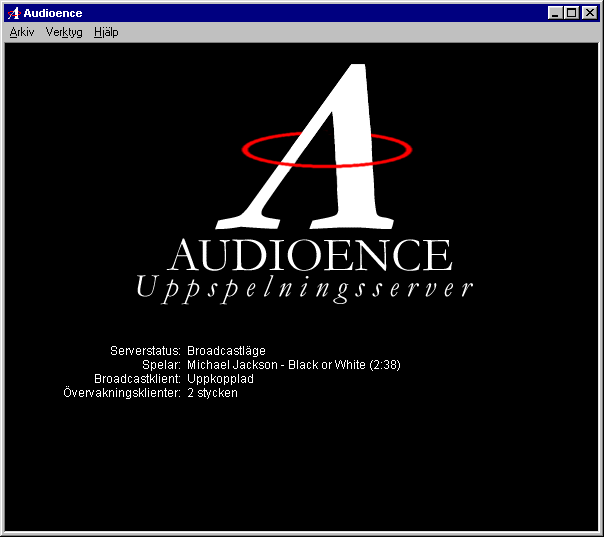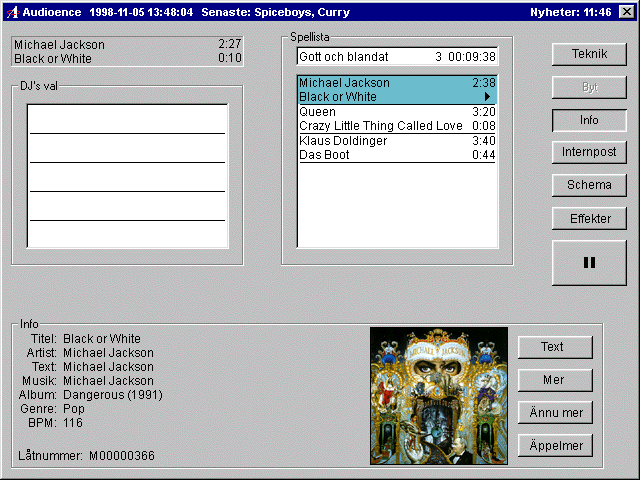Somewhere around July-August in 1998 a friend of mine, who at the time was working as a computer consultat, asked if I could crack a license limitation in one of his customers software. It turned out that the customer was a local radio station and that wanted to raise the limitation of the number of songs that could be stored simultaniously in thier jukebox system. Appearently the company who made the jukebox software charged differently for the number of songs you were allowed to store in the system. I agreed to come and visit him and take a look, more because a paid trip to go a technical tour in a radiostation sounded like a fun way to spend a day, than any real intent to crack the software. Indeed I was doubtful that I even could do it, since I had never cracked any windows software, which I suspected this to be.
I did have a joyous day at the radio station and got to know a lot about how it came that they always played crap music (they have an algorithm for that, though they call it psycologically modeled selection with rating feedback, or something that sounded like that), how they downlink commercials from satelites, how they read in all the in-betweens during the day so that they can broadcast unmanned during the night and just how much special software can suck. I was amazed of the inflexibility of the system they had bought for an incredible amount of money, and the compression used to store audio was nothing to be proud of.
After I had politely declined to not do anything about their license problem, my friend the consultant asked me if I could build a better system, because he had also witnessed the not-so-great system they had. I said what any sensible person would say; Give me some money so that I can conduct a prestudy. And he did.
I teamed up with a friend at the university and we begun working on a system that would meet the specifications that the employees at the radio station had hinted to me during my visit. The system had multiple storage servers, multiple control stations and a good logging system to ensure correct license handling. This is about as far as we got:



After a week or so we went to the radio station again and showed what we got, and for the first time we got to meet the pointy haired boss, although I think that he was hairless. We was interested and took a good look at what we got and concluded that
- We did not have any secret, patented algorithm to select shitty music around the clock (though his exact words might have been different).
- We was not a big company (which is a really valid point. We really didn't wanted to commit ourselves to support the product (though everything is a matter of pricing))
So we took the remaining week of the summer leave and did what everyone else was doing; relaxed.